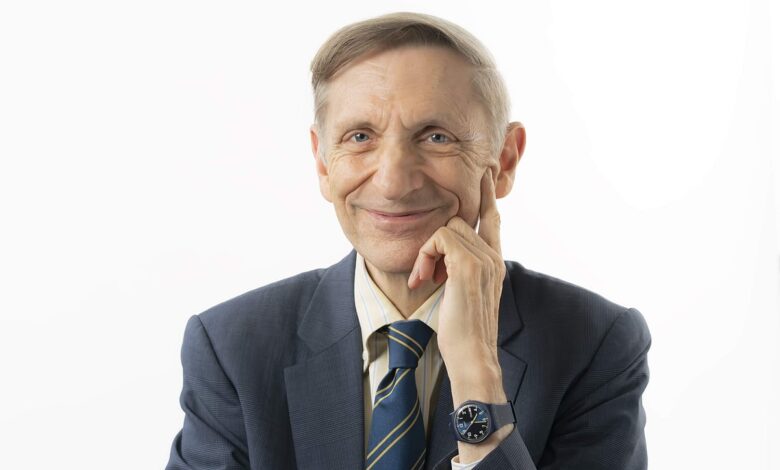The story behind how the Ashoka Fellowship was created after a roadtrip

Today’s generation is bogged down by not only the obvious pandemic but also by an economic lull, low employment opportunities and so on. In a scenario like this, how can we expect them to think beyond themselves and be a social entrepreneur?
Actively caring about others is what brings you the greatest happiness, satisfaction and success. What could be more empowering to another person than asking them to help? Asking them to imagine a solution and to make it happen?
There are 1,300 Ashoka Fellows (roughly one-third of the total) who are focused chiefly on kids, almost always very poor kids. Between 90 and 95 per cent of them put kids in charge. Grades shoot up and bullying falls. Moreover, this is what puts young people on the path to being competent, caring changemakers — which, in turn, is the key to success in an everything-changing, everything-interconnected world.
The same exact principle applies for the other major groups that have been long disempowered: Women and older people, not to mention various minorities. Don’t ask, “What can I do for that poor old man?” Instead ask, “How can I ask this older person to step up and contribute?”
You have said earlier that it pained you when young people were systemically denied access to knowledge and systems that would allow them to grow, you famously called it ‘criminal’, between the time you first came to India four decades ago and now, how do you see that gap?
Everyone now lives in the new everything-changing and connected reality. One can no longer learn a skill and then repeat it for life (think assembly lines and law firms). To say that one will solve India’s youth unemployment problem by giving young people skills is delusional.
Instead, every young person must be given their changemaking power. This requires them to step up and be changemakers. To have a dream, build a team and change his or her world. That dream could be a virtual radio station or a tutoring service or getting middle and high schools to teach astronomy. Any young person who does this is changed for life. They have what the world needs more than anything else. They have become changemakers — and they know it.
The key here is to make this the norm in every youth community. We know this because the Fellows have done this repeatedly at a very large scale. And Ashoka is now helping parents and tipping school systems, education publishers, education unions and other key actors.
It is a challenge for the first one or several young people who stand up and challenge the existing youth culture, not to mention the bureaucratic structures adults have typically created to make such initiatives difficult (“The insurance won’t allow it.” “The janitors won’t allow it.” and so on). However, all it takes is one per cent, five kids out of five hundred. Once they have given themselves permission to define a dream and then pull a team together and press ahead to make it happen, they typically attract 15 or 20 peers to their team (as organisers, broadcasters and so on) and 100 as clients. Because creating, giving, and being powerful is what we all want to do, and because young people are very persuasive with their peers, this pioneering one percent usually tips their school or other group in one or two years — irreversibly.
Any parent can quietly encourage their kids to dream and organise and change their world. Although their young people will initially be surprised, they’ll love the fact that their parents think they can, have faith in them to be powerful — and for the good.
If a disadvantaged community does this, their kids are going to be extraordinarily successful in the “everyone a changemaker” world. The demand for changemakers far outstrips the supply. Anyone with these abilities will never have a jobs problem. Sadly, however, disadvantaged communities are less likely to give their kids this superpower. They can. We should, as a completely urgent matter, ensure that they can and do.
Especially because we know what to do and because it’s so simple and so proven, it is criminal to allow any young person to grow up without the new abilities they will require to be able to be a contributor, a giver, a powerful person, that is, a changemaker, in the new everything-changing reality.
Source link

